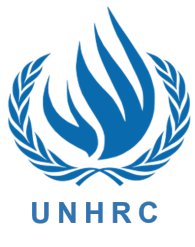Australia/Israel Review
Editorial: Three Reports On Gaza
Jul 1, 2015 | Colin Rubenstein

Colin Rubenstein
Last year’s fifty-day Gaza War, known in Israel as “Operation Protective Edge”, has returned to the fore recently as the subject of several internal and external inquiries.
The media has focused on the very questionable United Nations Human Rights Council’s (UNHRC) commission’s report released on June 22 – the mandate for which was a UNHRC resolution that openly declared Israel, and Israel alone, guilty of war crimes before any investigation had taken place. Yet two other recent reports (both of which can be found through links on AIJAC’s website) are actually much more valuable to anyone truly interested in learning the reliable facts about this conflict.
Israel released its own extensive report on June 14, detailing actual casualty numbers, the origins of the conflict and how Israel fought while taking unprecedented steps to try to minimise civilian casualties. But perhaps most relevant were the findings of an 11-member multinational High Level Military Group, made up largely of very senior military officers from numerous countries – including Australia’s own Major General Jim Molan – who visited Israel to study the conflict earlier this year.
The group represented extensive military experience, and included the former chiefs-of-staff of the German, Italian and Spanish armed forces, and very senior figures from the US, British, and Colombian armed forces as well as Australia’s Molan. Their conclusion is summarised in their letter to the UNHRC Commission:
“In the air, on the ground and at sea, Israel not only met a reasonable international standard of observance of the laws of armed conflict, but in many cases significantly exceeded that standard… A measure of the seriousness with which Israel took its moral duties and its responsibilities under the laws of armed conflict is that in some cases Israel’s scrupulous adherence to the laws of war cost Israeli soldiers’ and civilians’ lives…”
Why was their conclusion so different from the UNHCR Commission’s – begun under the leadership of former PLO consultant William Schabas but wound up under American Judge Mary McGowan Davis – which insisted that both Hamas and Israel likely committed war crimes?
One partial answer is that the Commission completely lacked the military expertise present in spades in the High Level Military Group. The Commission had no experienced and knowledgeable military perspective about what were reasonable casualty ratios in a conflict of this type, what is the appropriate amount and type of artillery or mortar use in a given battle, or about how difficult it is to distinguish civilians from fighters in a war where terror groups generally do not wear uniforms and deliberately hide among civilians.
But the problem is much larger. This was a report put together by the UN Human Rights Council – meaning the bulk of the actual work of researching and writing the report was done by UNHRC staff, and outside consultants they hired.
The UN is rampant with anti-Israel biases, but the UN Human Rights Council is especially problematic, as even successive UN Secretaries-General have acknowledged. Not only has it long been dominated by major human rights violators, it takes the anti-Israel agenda at the UN to a level that can best be described as obsessive. More than half of all resolutions that the UNHRC has passed since it came into being in 2006 have been condemnations of Israel.
Furthermore, as Hillel Neuer documented in the AIR this May, in the past, UNHRC staff hired a number of veteran anti-Israel activists and campaigners as consultants to play leading roles in compiling reports on Israel. In addition, in present and past UNHRC reports, the primary source of information relied on was Palestinian, Israeli and international NGOs, most operating with specific political agendas upon which their funding depends. These NGOs produce, at best, “prosecutor’s briefs” against Israel – happily citing unverifiable witnesses and repeating unverifiable claims, stretching international law to find ways to condemn Israel, and never, ever, giving Israel the benefit of the doubt.
This is the source of a whole series of absurdities of international law and fact in the UNHCR report, including:
- Insisting that Hamas’ terror tunnels into Israeli communities were not illegal since they might be intended only to attack Israeli military targets – despite captured Hamas documents proving the opposite.
- Interpreting broadcast threats by Hamas to rocket Israel’s cities and main airport – gloating attempts to foment panic – as a humanitarian gesture to save lives by issuing warnings.
- Insisting Gaza remains “occupied” by Israel under international law, when it clearly is not according to any rational reading of the relevant treaties – or even according to Hamas.
- Largely ignoring or dismissing Israeli video evidence of Hamas’ use of schools, hospitals, mosques and other civilian buildings for military purposes.
- Coming close to effectively inventing a new international law, never applied in Afghanistan, Iraq, or anywhere else, that one may not use explosive weapons – bombs or artillery – in built-up urban areas, even if civilians have been warned to evacuate.
The worst aspect of this whole fiasco, as in so much of what the UN does, is its terrible effect on prospects for an eventual two-state peace. Finding new ways to prevent the IDF from acting to defend Israel from Hamas – which is, in essence, the guiding message behind the UNHCR report – will undermine the chances for Israeli-Palestinian peace in two complementary ways.
Firstly, it will encourage Hamas to provoke future escalations in hopes of further isolating the IDF and inciting renewed international outrage at Israel, and also help Hamas in its fight against the more moderate Palestinian Authority. Secondly, it will make it much harder for any democratically elected Israeli government to sell the risks of withdrawing from territory to an Israeli people who will rightly be sceptical that the world will support Israel’s right to defend itself against potential attacks emanating from a future Palestinian state.
Tags: Israel






